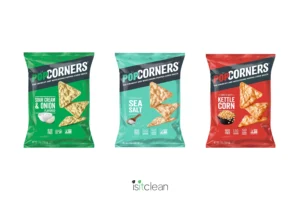
Acesulfame potassium is a zero-calorie sweetener that is added to many sugar-free…



Refined coconut oil is a processed version of coconut oil that undergoes refining and deodorizing to remove impurities, flavor, and aroma. The production process typically involves bleaching, filtering, and steam distillation. Refined coconut oil has a neutral taste and higher smoke point compared to unrefined coconut oil, and is commonly used in high-temperature baking, frying, and sautéing. Refined coconut oil is also commonly used in the food industry for making snacks, baked goods, and various processed foods.

Refined coconut oil undergoes a refining process that may involve the use of harsh chemicals such as hexane or a more gentle steam refining process, depending on where it’s sourced. On an ingredient label, it won’t be possible to know which method of refining is used, but researching a brand’s methods when purchasing coconut oil at a store is possible. Refining coconut oil may result in the loss of some antioxidants. Coconut oil is rich in saturated fat, which has negative implications for cardiovascular health. However, the type of saturated fat that coconut oil is rich in is medium-chain triglycerides (MCTs), which have been studied to affect metabolism and body composition positively. Coconut oil has shown that it can increase both LDL and HDL cholesterol, and research has been mixed on how this impacts cardiovascular health. Ultimately, coconut oil is a very stable cooking oil that is not as heat-sensitive as polyunsaturated fats, making it a better option for higher-heat cooking. Refined coconut oil may be healthfully consumed in moderation, however, it is very high in calories and could impact cardiovascular health when consumed in excess.
Health is like a bank account, certain ingredients make a deposit into your health bank, meaning they add to
your health. Certain ingredients withdraw from your health bank. We want health promoting ingredients in our diet. To keep things simple, we rate ingredients on a green, yellow, red scale:

It is naturally occurring in food and has no harmful effects on the body. It is real food. It is health promoting.

It goes into one or more of the below categories

It is known to have a harmful effect on the body (ex. All food colorings, Natural Flavors, MSG, Potassium bromate, aspartame, artificial flavors)



The Food Showdown: Popcorners flavors
Ingredient Rating: Canola oil – is it bad for you?
Clean Consuming: Nourishment for your

We have accomplished so much in just 1 year since our launch in March of 2023! We now have 10,000

The Nacho Chip Food Showdown, is Tapioca Starch safe in food? and a must-see documentary on America’s food system.
Stay in the know with the latest ratings, articles, and our newsletter, The Dirt.